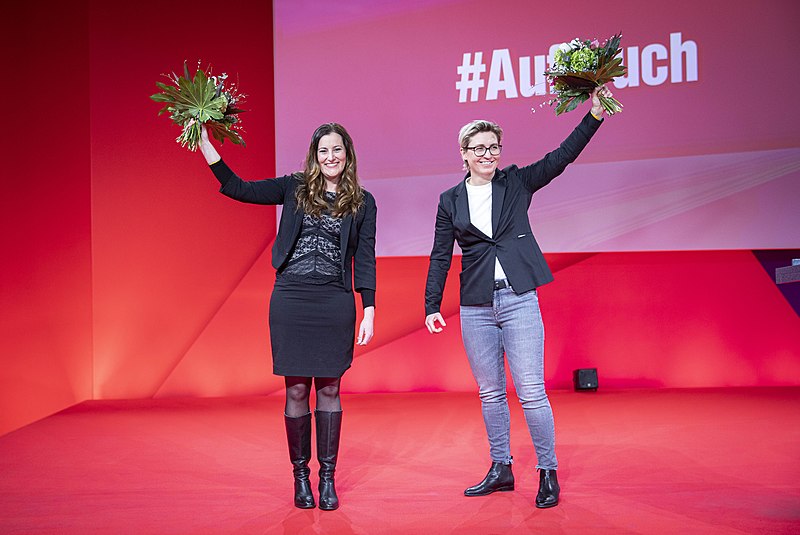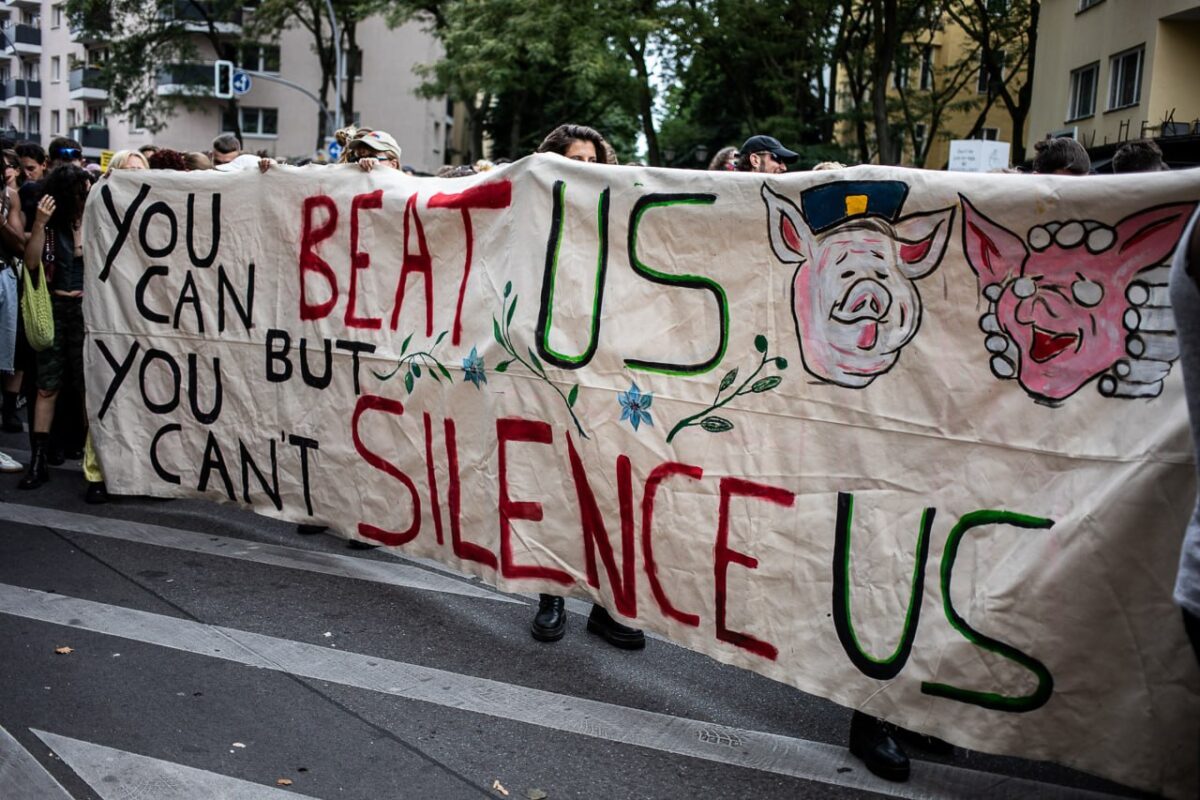The new LINKE leadership duo is, as usual, a reflection of party contradictions on strategic issues. Susanne Hennig-Wellsow is leader of the group in East German state of Thuringia, where Die LINKE is not only in government, but even leads it with Prime Minister Bodo Ramelow and governs very pragmatically. Nationwide, she is best known for throwing a bouquet of flowers at the feet of ephemeral Thuringia’s Prime Minister Thomas Kemmerich, who had risen to office with votes from the ultra-right AfD in Thuringia.
Janine Wissler, for her part, comes from Frankfurt-Main in the West, leads effective opposition as a group leader in Hesse and was part of the marx21 revolutionary socialist network until her candidacy.
Fresh wind
For many members of DIE LINKE the choice of the two young women feels like both a breath of fresh air and a continuation of their predecessors Bernd Riexinger and Katja Kipping. Despite Kipping parliamentarism, the old leadership emphasized participation in social movements. At the same time, the election of the new leaders, as well as composition of the new party executive, shows signs of an agreement with the former leader of the parliamentary fraction, Sahra Wagenknecht.
Since 2015, Wagenknecht has moved more and more to the right in the area of migration and asylum. When she couldn’t find a party majority for her positions, she founded the Aufstehen organization, which soon failed. Today, she still claims that anti-fascism and anti-racism, feminism and LGBTQ+ activism, as well as climate protests, would only distract attention from ‘social problems’ and deter ‘workers’.
It’s to be hoped that Die LINKE’s new party executive can do something to overcome the deadlock in which it has ended nationally. The past few years have been dominated not only by the internal struggle over Wagenknecht migration and politics, but also by a general low level of social movements and class struggle only increased by the pandemic. Die LINKE has struggled for a long time to cope with the crisis and still does. As a result, the party continues to have between 7 and 8 percent in the election polls.
Crisis of coronavirus
The party takes the pandemic very seriously and supports the ZeroCovid campaign, which, among other things, asks for long-term closure of schools and the workplace and links it with rights and decent economic compensation for workers. Die LINKE also demands the expropriation of vaccine patents and sometimes even the pharmaceutical industry. But at the same time, Ramelow – as Prime Minister of Thuringia – is following a zigzag policy regarding coronavirus and Wagenknecht now also appears to be flirting with coronavirus skeptics.
In the Bundestag, Die LINKE cannot formulate a clear alternative program to combat pandemics and combat the associated economic and social crisis. In March last year, Bundestag member Dietmar Bartsch set a wrong tone by praising Merkel for her good crisis management and offering Die LINKE’s support for ′′significant measures”. He immediately added that criticism should wait until after the pandemic.
Social movements
Of course, the coronavirus has also complicated things for many social movements. There are no mass tenants’ protests, and the negotiating position of unions has also been greatly affected. Large scale mobilizations like those in 2018 and 2019 are now impossible. That also doesn’t help Die LINKE, either in public debate, or in building an activist party.
But the deadlock is also about the often weak and even destructive performance of leaders like Bartsch and Wagenknecht in the Bundestag faction. They largely ignored those movements that mobilized and were nationally visible, such as Black Lives Matter and Fridays for Future, and preferred to concentrate on parliamentary order.
A few days before the pro-refugee Unteilbar demonstration of 250.000 people in Berlin in 2018, Wagenknecht even clearly distanced herself from the action. This has left deep wounds and has distanced a lot of people from the party in previous years.
However, there are still local positive points and opportunities to take on the fight everywhere. The binding referendum initiative for the expropriation of large housing corporations in Berlin is very promising. The campaign aims to turn a quarter of a million homes into public property and can count on the support not only from Die LINKE, but also from tenant associations, unions and many other social organizations. Walls have been covered in posters, signatures are being collected on the street with enormous energy.
Not only did Die LINKE introduce the expropriation bill in parliament, it is also an essential part of daily actions with hundreds of activists. This means that Berlin’s expropriation campaign created a climate of hope at Die LINKE’s national congress.
This article first appeared in Dutch in the socialisme.nu website



